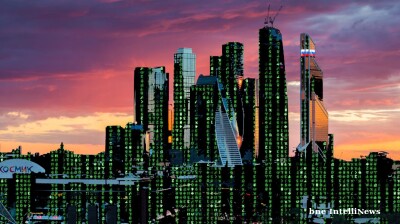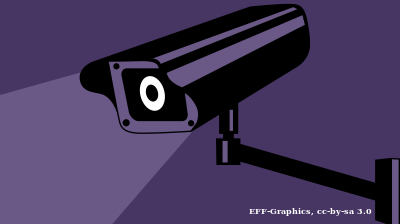Arkady Volozh, the former CEO of Russia’s internet giant Yandex, issued a statement on August 10 that slams Putin’s “barbaric” war in Ukraine, a statement that will almost certainly see him lose control of any assets or money he still has in Russia.
“Russia’s invasion of Ukraine is barbaric and I am categorically against it. I am horrified about the fate of people in Ukraine – many of them my personal friends and relatives – whose houses are being bombed every day,” Volozh wrote in a statement emailed to bne IntelliNews. “Although I moved to Israel in 2014, I have to take my share of responsibility for the country’s actions.”
Most of Russia’s leading businessmen have issued very guarded statements on the war, afraid of being dispossessed. One exemption was Oleg Tinkov, the owner of Tinkoff Credit Systems (TCS) that owns Russia’s only purely online bank that is listed in London and was worth more than $1bn before the war broke out. After unabashedly criticising Russia’s decision to invade Ukraine last year, he was forced to sell his bank to fellow tycoon Vladimir Potanin for “pennies on the dollar” and fled into exile in Mexico.
A similar fate now almost certainly awaits Volozh, who still owns some 8% of the New York-listed Yandex, known as “the Russian Google”, and formerly the most valuable tech company in Europe with a market capitalisation of around $30bn pre-war.
The Russian part of Yandex is still making money and posted 55% year-on-year growth in top line revenues to RUB183bn ($2bn) in 2Q23 in July, expanding by 55% for 1H23 overall as well to RUB346bn.
Volozh stepped down as Yandex CEO and left the board of directors in summer 2022 when he wrote a farewell message to his staff. The EU left the market guessing on Yandex’s fate after designating him in its sixth package of sanctions for Russia's invasion of Ukraine.
Yandex’s parent company recently announced that it would divest its Russian business, but was planning to keep hold of four technology startups which it hopes to grow outside Russia.
The process of breaking Yandex up into its Russia and international businesses is ongoing. Trading in Yandex shares was halted shortly after the war started, but in June Nasdaq said that it would not delist the company if it sold off its Russian assets, leaving Volozh and his international shareholders with the international assets that would remain in the US listed entity.
Former Finance Minister Alexei Kudrin has been advising the Yandex Board on the restructuring, including the plan for Yandex’s parent company to divest all Russia-based assets. Several of Russia’s leading businessmen, including Potanin, have expressed an interest in buying, although no concrete deal has been reached yet.
If Volozh was hoping to get paid something for his remaining stake in the company as part of the deal, those hopes will have died now. But he will have certainly understood he took this risk when he condemned the war.
“He won’t be destitute, but he is no longer a wealthy man,” a source close to the company told bne IntelliNews.
The Kremlin has become increasingly aggressive in grabbing assets of those that oppose it. Initially foreign companies were told they would be permitted to exit the Russian market, but only if they agreed to offer a 50% discount on the valuation as well as make a “voluntary” 10% payment to the government.
More recently the Kremlin has turned to outright nationalisation, taking over the businesses Finnish and German energy majors Fortum and Uniper in June, and food producers Danone and Carlsberg in July, which will be handed to Russian President Vladimir Putin’s cronies.
In the same month Putin has instructed the government to make it even harder for “naughty” (nekhoroshi) Western companies to work in Russia and those that do not want to play by the Kremlin’s rules to exit.
Over the last year, while the board worked on restructuring the company to reflect new political realities, Volozh has been working to support the company’s engineers that wanted to leave Russia. Since the war started there have been two big emigration waves – one immediately after the war started and another in September last year during a partial mobilisation that began on September 21 – where an estimated half of the 1mn that left the country are believed to have worked in the IT sector.
According to bne IntelliNews sources, Volozh has been agonising about the decision to speak out against the war. As he said in his statement, “I am known as one of the founders of Yandex. In our minds, when we founded it, we weren’t only creating a technology company. We were helping to create a new Russia – open, progressive, integrated into the global economy, and able to bring value to the world beyond natural resources,” Volozh said in the statement.
“Yandex was made possible thanks to the unbelievable engineering and tech talent that we were able to attract, retain and cultivate… Since the start of the war, I have been focused on trying to support the talented Russian engineers who took a decision to leave the country. It has been an extraordinarily complex process, helping these engineers to start a new life. It has required focus, care and discretion. These people are now out, and in a position to start something new, continuing to drive technological innovation. They will be a tremendous asset to the countries in which they land.”
Volozh went on to say that he expects some to criticise him for staying silent for more than a year and half but added there should be no questions about his stance: “I am against the war,” he said boldly.
Several high-profile western-based Kremlin critics, such as the former investment banker Bill Browder and one-time oligarch Mikhail Khodorkovsky, have called on Russia’s business elite to speak out against the war.
“Public figures cannot leave quietly and then sit quietly. If you have left, then you should publicly dissociate yourself or we should be forced to suspect that you are acting on [the Kremlin’s] behalf,” Khodorkovsky said in an interview last year in his London office. “You should step up to the microphone and say that Putin is a war criminal and that what he is doing is a crime, that the war against Ukraine is a crime. Say this, and then we’ll understand that Putin doesn’t have a hold over you.”
Very few of Russia’s business elite have met the call, as most of them are too concerned with hanging on to their significant Russian assets that are still worth billions of dollars, even if valuations have been halved by the international sanctions on Russia.
Tinkov is one of the few exceptions and did speak out. As an oligarch he was included in the Western sanctions list, but in acknowledgement of his courage to speak out the UK rescinded those sanctions in July.
Volozh has now come out as a leading example of a top Russian businessman who is prepared to give up his fortune for the sake of his conscience.
Tech

Russia blocking messaging apps again, sets up copycat Telegram app
Russia’s internet watchdog Roskomnadzor has been blamed for another round of internet outages in Russia, as the state sets up a Telegram messaging app clone as the Kremlin continues to take increasing control of RuNet.

Albania’s AI minister ‘pregnant’ with 83 children, PM says
AI “minister” Diella will give birth to dozens of digital parliamentary assistants for ruling party MPs.

Is Kazakhstan building a digital utopia, or a China-style surveillance state?
Many Kazakhs will tell you that officials should limit their ambitions to fixing the internet speed. Others worry that the time for joking is over.

Kia inaugurates $310mn "highly automated" automotive plant in Kazakhstan
Featuring 68 industrial robots, the plant is designed to produce up to 70,000 vehicles annually.

_0_0.jpg)


